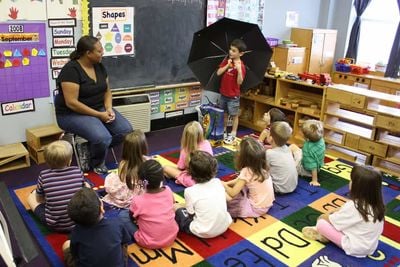Games in The Classroom as The Best Source of Language Learning

Using games in the classroom is beneficial for better student learning. Games are helpful when introducing new content, enhancing the learning process, or reviewing learned material. A low-stress atmosphere in the classroom is created easily by adding games. From Gap fill to Fizz Bizz to I Spy they can help the teacher maintain a positive attitude and establish rapport with students. Games create an environment where students want to participate and aren't afraid of correction or failure.
Table of Contents
Games can be used for all language means
Are you ready to teach English abroad?
This post was written by our TEFL certification graduate Ellen P.
Researches on the point
Vince Goman RTC, CPCC, BBA, Somatic Counselor said in his book, Let The Fire Burn, "Play is the foundation for academic learning. While the left brain is more interested in outcomes or Product the right brain cares much more about Process-the journey is what matters, not the destination." Certainly learning a new language requires both process and product however; play or games help the process go more smoothly. In a product-centered environment students quickly acquire what Gowman calls "learned stupidity-they believe themselves to be incapable and lose their natural desire to learn." Games are beneficial when a teacher wants to give individual attention to students in a non-threatening way. Games automatically lessen the tension in a room. By implementing a game like activity at the beginning of a lesson the engage technique (Engage, Study, Activate method) is used to introduce the new subject matter. Thought to provoke questions are often sparked.
Also Read: Teaching English in Japan - Alumni Report by Gabriella S.
The learning process is enhanced using games because they are all-inclusive. The level one learner isn't the only student that will enjoy a game. All abilities and ages can participate. The needs of students with different learning styles like auditory, visual, and kinesthetic are met readily through games. Reluctant learners participate and contribute more when they are in a game situation. Corinne Hutt (1979) British Psychologist identified three broad categories of play. Two of which specifically work in a classroom situation. The first being epistemic play, "which is used to satisfy curiosity and learn about the environment." English as a new language is definitely a new environment. The second category is ludic play, "when imaginations are used to create fantasy and amusement." This part may not be fabulous for learning English but the second component of ludic play is: "creating or following games with rules leading to comprising structured activities usually governed by negotiated rules." (July 2016) Both categories are beneficial for learning languages.

Games can be used for all language means
All components of English learning can be addressed through games. Writing, speaking, and reading is reinforced. Games are good for our brains. I am not necessarily a proponent of video games in the classroom but even their research studies show a little gaming can be beneficial. Constance Steinkuehler in her keynote presentation at the Games For Change Festival gave some information: 1. Games provide a 23% gain over traditional learning increasing learning outcomes by two grade levels. 2. Games are powerful motivators functioning better when the learning is the playful part, not just a side note. In further research (2012) C.S. Green and D. Bavelier noted that "games are even effective at training us how to learn and shapes our attention."
Also Read: Top 8 Resources For Researching Teaching English Abroad
Technology and games
As technology advances, tic-tac-toe vocabulary may soon be replaced with a digital version. Games will still be a beneficial part of learning. "Games are great for language gains." says Michael F. Young, Stephen Slota, Andrew B. Cutter (March 2012) "If allowed choice reading gains are inherent to gaming." Whether it is a single task or multiple objectives game style activities help with the study phase of a lesson. Games are also useful in reviewing or testing learned material. Peer motivated correction is often seen in a small group or whole class activities. This interaction is less stressful and correction of both mistakes and errors is gentle. Students are more accepting of it in a game atmosphere. The activate phase is enhanced as students mingle with each other and try out language for themselves.

The importance of games
Language learning progresses for the student as they aren't just watching a teacher talk through a lesson or regurgitating dry facts or cold information. It is often said: A children's work is play. The country of China ratified the United Nations Convention on the Rights of the Child in 1992. In 1996 and 2001 the Ministry of Education published guidelines for public...education that specifically and intentionally integrated Article 31 "The Right To Play" as a national educational priority.
Also Read: Where are the best places to teach English abroad?
Are you ready to teach English abroad?
Unicef Actively participating and internalizing through games allows us, even adults, to solidify concepts and skills. Games help us celebrate. We let our guard down, we ask for help. Games afford us a safe way to make mistakes, learn from our mistakes together, practice what we've learned and shown or teach others. In conclusion, better student learning can occur by utilizing games in the classroom.
Apply now & get certified to teach english abroad!
Speak with an ITTT advisor today to put together your personal plan for teaching English abroad.
Send us an email or call us toll-free at 1-800-490-0531 to speak with an ITTT advisor today.
Related Articles:
- Step-By-Step Guide to Legally Teaching English in South Korea
- The 7 Biggest Myths About Teaching Abroad Alone as a Woman
- 5 Reasons Why You Should Teach English in South Korea
- When One Teaches, Two Learn - An English Teacher in Korea Shares Her Story
- 9 Vegan Friendly Destinations for Teaching English Abroad
- Teaching English in South Korea - Should You Teach in the Countryside or City?



